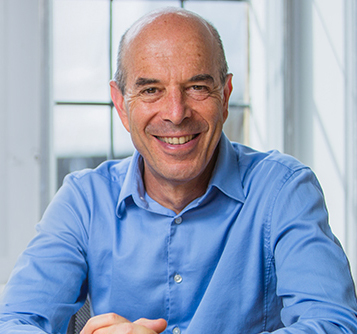The North-West University’s (NWU’s) Optentia research focus area recently hosted a webinar by Prof Ian Goldin, a world-renowned researcher.
The title of the webinar was “The Covid-19 pandemic: From global crisis to a better world”, during which Prof Goldin talked about the necessity to think about life after Covid-19.
He analysed how the Covid-19 pandemic has fuelled global individualism and global nationalism, putting globalisation under significant threat as governments are forced to outline new priorities.
Explaining how the pandemic provided a unique opportunity to tackle today’s challenges, Prof Goldin used the example of how – during the Second World War – the welfare state and new world order was created to build more unified societies to fight global threats. He argued for more solidarity to overcome Covid-19 and other global threats.
Although he acknowledged that globalisation can pose certain threats such as fake news, computer viruses, financial crisis and global pandemics, he argued that without it there would be no vaccines, global human rights movements, no support for anti-apartheid movements and no flow of ideas and knowledge.
“Due to global individualism, developing countries are hit hard as they are receiving less than one percent of aid money.
“It’s a huge scandal that the United Kingdom has cut its budget by a third at a time when the need has never been greater. We need more solidarity to overcome global problems,” he remarked.
He also regretted the vaccine nationalism and labelled it as extremely dangerous as it prevents the distribution of vaccines.
Prof Goldin also questioned the rationale behind closing universities and schools during the pandemic, and criticised anti-vaccine movements and fake news for promoting misinformation about Covid-19 vaccines.
He added that going back to business as usual after the Covid-19 pandemic would be as disastrous. “Bouncing back to business as usual will be a nightmare as it would increase inequality and escalate climate change.”
More about the expert
Prof Goldin is currently the director of the Oxford Martin Programme on Technological and Economic Change at the University of Oxford. He is also the founding director of the Oxford Martin School, the world’s leading centre for interdisciplinary studies focused on finding solutions to the biggest global problems.
From 1996 to 2001 he was chief executive of the Development Bank of Southern Africa, and also served as an adviser to former president Nelson Mandela during this time. From 2001 to 2006 he was vice-president of the World Bank and the group’s director of policy.
He has published numerous articles and 22 books, including Globalization for Development and Exceptional People: How Migration Shaped our World and Will Define our Future.
His most recent book – From Global Crisis to a Better World – examines the impact of the pandemic on the future of jobs, cities, globalisation, governments and businesses, and the necessity to think about life after Covid-19.

Prof Ian Goldin.
